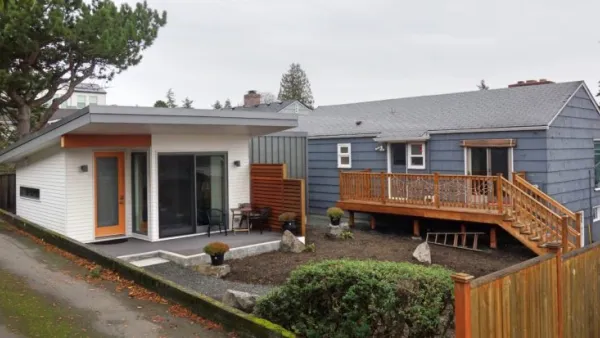A coalition of unlikely allies are circulating a sweeping ballot initiative in San Diego that would decide a hodge-podge of land use and tax issues confronting the city in one fell swoop. But is it legal?
In San Diego, a downtown hotel developer, an attorney who has blocked the increase of the transient occupancy tax (TOT), and a leading environmentalist have joined forces to promote a ballot initiative that would decide, or at least limit the choices, on a number of far flung issues. These issues include, among other things, a TOT increase and the location and funding of additional convention center facilities, an NFL stadium, and an "Urban Rivers Scientific Interpretive Center." The ballot initiative is entitled "The Citizens’ Plan for the Responsible Management of Major Tourism and Entertainment Resources."
FULL STORY: Does San Diego’s “Citizens Plan” ballot initiative violate the single subject requirement?

Maui's Vacation Rental Debate Turns Ugly
Verbal attacks, misinformation campaigns and fistfights plague a high-stakes debate to convert thousands of vacation rentals into long-term housing.

Planetizen Federal Action Tracker
A weekly monitor of how Trump’s orders and actions are impacting planners and planning in America.

In Urban Planning, AI Prompting Could be the New Design Thinking
Creativity has long been key to great urban design. What if we see AI as our new creative partner?

Florida Seniors Face Rising Homelessness Risk
High housing costs are pushing more seniors, many of them on a fixed income, into homelessness.

Massachusetts Budget Helps Close MBTA Budget Gap
The budget signed by Gov. Maura Healey includes $470 million in MBTA funding for the next fiscal year.

Milwaukee Launches Vision Zero Plan
Seven years after the city signed its Complete Streets Policy, the city is doubling down on its efforts to eliminate traffic deaths.
Urban Design for Planners 1: Software Tools
This six-course series explores essential urban design concepts using open source software and equips planners with the tools they need to participate fully in the urban design process.
Planning for Universal Design
Learn the tools for implementing Universal Design in planning regulations.
Gallatin County Department of Planning & Community Development
Heyer Gruel & Associates PA
JM Goldson LLC
City of Camden Redevelopment Agency
City of Astoria
Transportation Research & Education Center (TREC) at Portland State University
Jefferson Parish Government
Camden Redevelopment Agency
City of Claremont




























